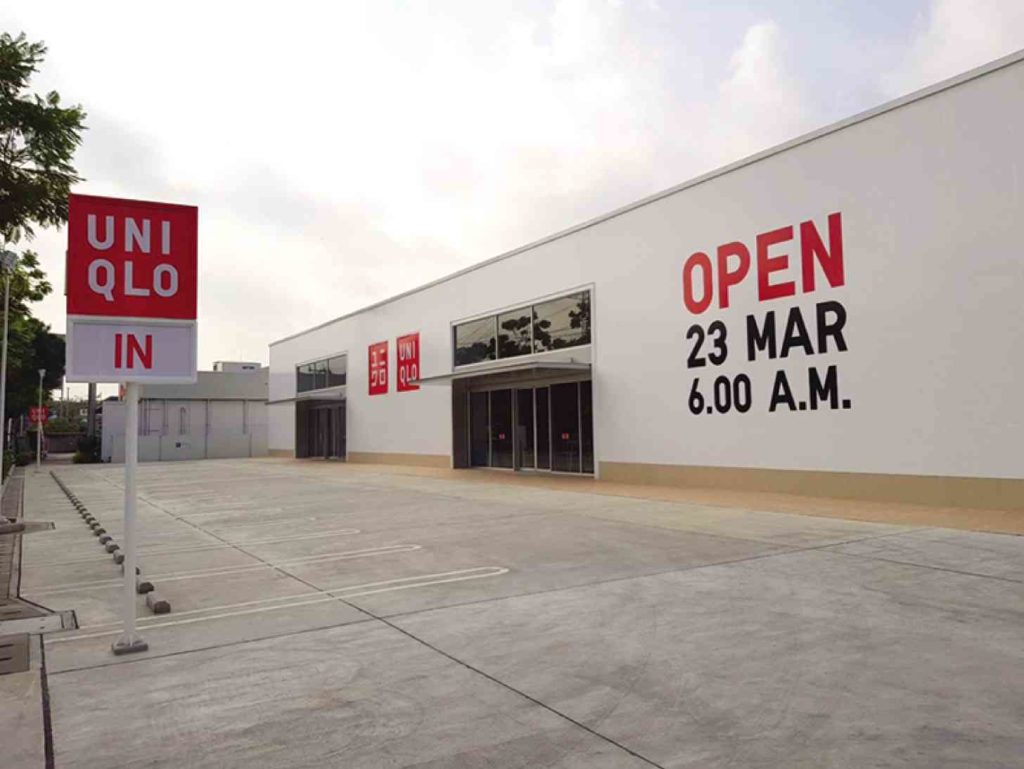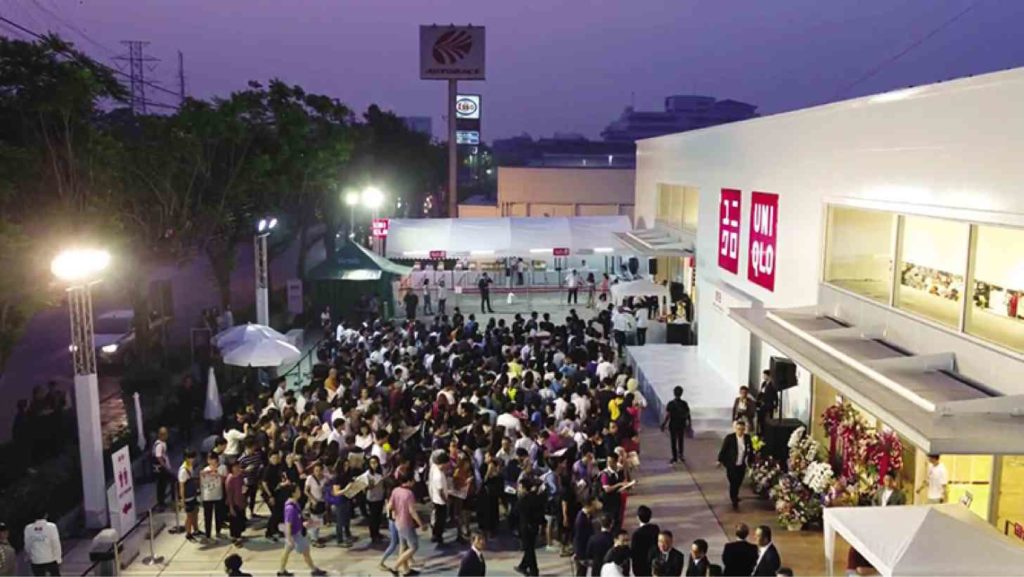Going beyond malls and into the roadside
It’s about bringing the shopping experience closer to customers’ homes while revitalizing the business and cultural landscape of the local community.
This was the mission of Uniqlo, a leading Japanese apparel retail brand, when it launched its first roadside store in Southeast Asia at Phatt-hanakan district in Bangkok, Thailand, reinforcing the company’s stronghold in the region.
The said retailing model, which was first introduced in the company’s home country in 1985, is an innovation from the mall format where most of its stores in the region are located.
Roadside concept
A roadside store is strategically located in a neighborhood and is visible from and accessible through main roads from city centers or suburban areas.
It also features a spacious land area and large parking space for shoppers with vehicles, promoting a convenient and enjoyable shopping experience for customers.
In a media conference a day before the actual store opening, Takenori Motoda, group SVP of Fast Retailing Co. Ltd. for global store development, said the roadside store concept is expected to stabilize and stimulate the economy of a community as it could generate local employment, boost real estate, and attract other businesses and retailers in the area.
Motoda added that the stores would serve as the
community’s lifestyle and cultural hub by organizing regular special events to promote engagement among locals.
Considering the PH
Motoda added that while the Philippines is considered a potential site for the next roadside store opening, there are no concrete plans yet as of the moment.
“We’re giving our best effort to considering the best as to when and where to expand our first roadside store within the Philippines,” he said.
There is a possibility to open one roadside store in the country, and only if it turned successful would they consider opening more, Motoda added.
For Satoshi Hatase, group SVP and CEO for Southeast Asia and Australia operations, the thriving of food businesses as roadside stores in the Philippines is a telling indicator for apparel businesses to follow suit.
“The habit is formed already among Filipinos to get into cars as a family, park their cars outside restaurants, have their food and just eat,” Hatase said.
“So the business model we are looking for is where we can actually have people who live there who will work for us and also to have customers who live somewhere there to buy from us,” he further noted.
Hatase believes that Uniqlo’s success in the country is caused by Filipinos’ open mindedness in accepting new concepts and taste for casual wear.
“[Filipinos] do not like to dress up very formally all the time. So when they do clothes shopping in a roadside store, they don’t have to go to a mall where they have to dress up and makeup and then wait for parking space,” Hatase said.
Other countries with roadside stores are South Korea (2012) and Taiwan (2013). In the Philippines, there are over 50 Uniqlo stores inside malls since it expanded in the country in 2012.
Design concept
The design of the roadside stores is standardized. The box-shaped white building features a simple yet elegant interiors with high ceiling and spacious floor area to promote customer mobility and prominence of product displays.
It could either be a standard or large type depending on the size requirements. A standard type has a land area of at least 3,000 sqm that could fit a building size of 1,000 sqm and a parking and drop-off area of 50 sqm. For a large type, it covers a land area of 5,000 sqm with building size of 1,800 sqm and parking and drop-off space of 100 sqm.
There are also two options for the store development. One scheme is that a land owner will construct the building compliant with Uniqlo’s specifications and lease it to the retail company. The other would have an investor rent a land to the property owner and construct a Uniqlo-compliant building that will be leased by the company.
Contract term for building lease agreement is up to 15 years from store opening.
Uniqlo currently has over 1,900 stores worldwide in 19 markets, including Australia, Belgium, Canada, China, France, Germany, Hong Kong, Indonesia, Malaysia, Russia, Singapore, Spain, United Kingdom and the United States.

